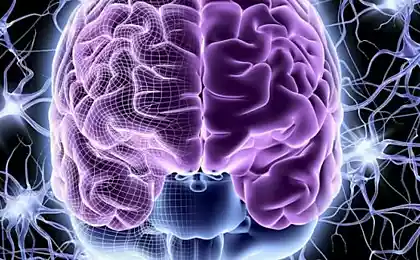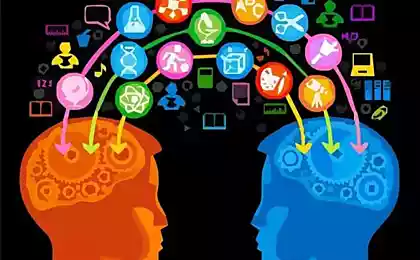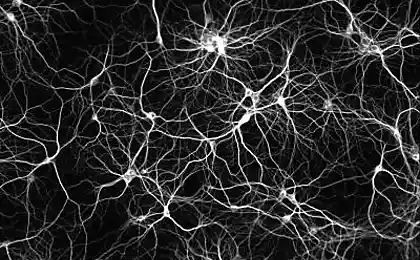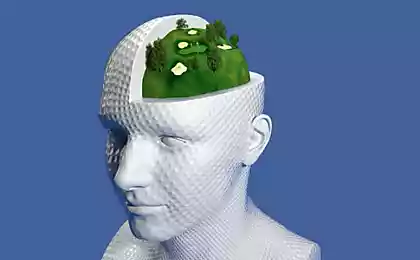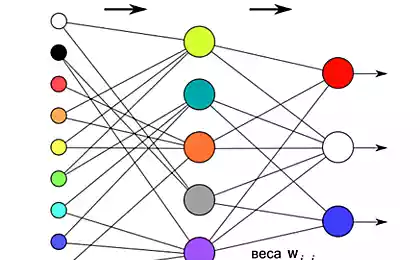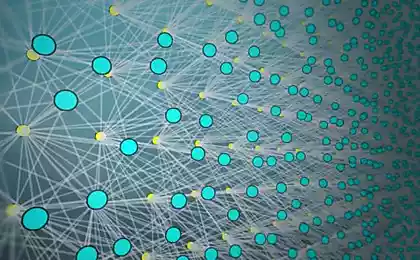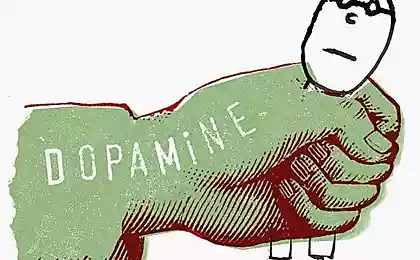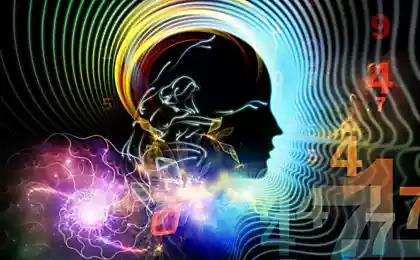567
Vasily klucharev: How our brain makes decisions?
June 20 at Digital October as part of the project Science Mondays there was a lecture by neuroscientist, Professor, head of the Department of psychology of the HSE Vasily Klyuchareva called "Neuroeconomics. How the brain makes decisions?".
Neuroeconomics or neuroscience of decision making, – science, bringing together economists, biologists, neuroscientists and psychologists in search of an answer to the question: "What is the nature of certain decisions we make?». For example, how to explain our irrational behavior and a tendency to irrational decisions?
Eighty five million seven hundred fourteen thousand six hundred forty seven
What fugu is a traditional dish of Japanese cuisine, delicious and poisonous. Also you have a choice to eat this delicacy or not to eat. "Thrills" can result in serious poisoning or death. And then you decide – is. But really that's not your decision, and the neurons in a particular area of the brain. The frequency of discharges per second affects your choice. Thus, the neuron responsible for making decisions, gradually increases their activity and at some point reaches the threshold – the decision is made. But not so simple. First, a neural network structure is very complex: one neuron is connected with many others, and the total number of neurons and connections is quite large. Themselves neuroscientists like to point out that connections between neurons more than the stars in the sky. Second, there are fundamental aspects of decision-making: risk, utility, rational, emotional mechanisms, and so on.
"Connections between neurons, more than the stars in the sky»
Fifty million seven hundred twenty five thousand forty five
We will focus on the utility. In theory, the decision utility is a measure of the attractiveness of a particular decision or action. How to evaluate it? For example, to evaluate the usefulness of fugu eaten by you, from the point of view of an economist, it is impossible. Usefulness is a subjective value, and measure of money (in this case, to help in economic science come to "relative preference" – what is valuable at the moment). For neuroscientists same usefulness is the activity of neurons in the nucleus accumbens and orbitofrontal cortex.
The value of our solutions is encoded by discharges of neurons in these brain regions. The value depends on the rewards one expects to receive: neurons aktiviziruyutsya in proportion to the reward (studies Brian Knutson). If you learn that after eaten fugu there'll be a reward, e.g. money, then your brain is likely to choose the option to eat this dish.Man always chooses the best option: with the highest subjective value (of course, if a person has no violations in certain areas of the brain).
"The value depends on the rewards one expects to receive: neurons aktiviziruyutsya in proportion to the reward»
Forty seven million seven hundred fifty nine thousand three hundred ninety six
In the case of fugu, it is important to note that you are in a situation of risk (no one is safe!). Risk is one of the most popular topics in neuroeconomics. Researchers view decision-making as "the ensemble of neural populations in different brain regions", – said Vasily klucharev. There are two important areas of the brain that are involved in making decisions in situations of risk. This "pleasure center", the stimulation of which leads to feeling of pleasure, and the"insular cortex", is activated when we experience pain. The first area is responsible for risk appetite, the second, respectively, for a dislike to him.
How does it work? For example, there's a study where men were shown erotic pictures, operating on the "pleasure center". Men activated the "pleasure center", really started to make more risky decisions with their finances. So, risk appetite depends on the relative activity of the two brain regions. The conflict between them leads to a result – your decision. However, the puffer will eat you or not depends on your attitude to risk, not only overall, but also to the types of risk. Someone not afraid to take risks financially, but cautious in his social life.
Also interesting: Neuroscientist John Lilly about a non-existent objectivity and sense of fear
Neurons navigate: how the brain remembers where he was
The above areas of research not only in neuroeconomics. This science also studies the social interaction, self-control, the role of emotions, etc. in decision-making.
Twenty one million five hundred thirteen thousand seven hundred forty seven
As a whole, neuroeconomics tries to explain our behavior, our choices, the activity of the brain. If we can understand how the brain works, we will be able to predict our desires and influence them.published
Author of text and photo: Elena Dmitrieva
P. S. And remember, only by changing their consumption — together we change the world! ©
Source: thewallmagazine.ru/neurobiology-behaviour-review/
Neuroeconomics or neuroscience of decision making, – science, bringing together economists, biologists, neuroscientists and psychologists in search of an answer to the question: "What is the nature of certain decisions we make?». For example, how to explain our irrational behavior and a tendency to irrational decisions?
Eighty five million seven hundred fourteen thousand six hundred forty seven
What fugu is a traditional dish of Japanese cuisine, delicious and poisonous. Also you have a choice to eat this delicacy or not to eat. "Thrills" can result in serious poisoning or death. And then you decide – is. But really that's not your decision, and the neurons in a particular area of the brain. The frequency of discharges per second affects your choice. Thus, the neuron responsible for making decisions, gradually increases their activity and at some point reaches the threshold – the decision is made. But not so simple. First, a neural network structure is very complex: one neuron is connected with many others, and the total number of neurons and connections is quite large. Themselves neuroscientists like to point out that connections between neurons more than the stars in the sky. Second, there are fundamental aspects of decision-making: risk, utility, rational, emotional mechanisms, and so on.
"Connections between neurons, more than the stars in the sky»
Fifty million seven hundred twenty five thousand forty five
We will focus on the utility. In theory, the decision utility is a measure of the attractiveness of a particular decision or action. How to evaluate it? For example, to evaluate the usefulness of fugu eaten by you, from the point of view of an economist, it is impossible. Usefulness is a subjective value, and measure of money (in this case, to help in economic science come to "relative preference" – what is valuable at the moment). For neuroscientists same usefulness is the activity of neurons in the nucleus accumbens and orbitofrontal cortex.
The value of our solutions is encoded by discharges of neurons in these brain regions. The value depends on the rewards one expects to receive: neurons aktiviziruyutsya in proportion to the reward (studies Brian Knutson). If you learn that after eaten fugu there'll be a reward, e.g. money, then your brain is likely to choose the option to eat this dish.Man always chooses the best option: with the highest subjective value (of course, if a person has no violations in certain areas of the brain).
"The value depends on the rewards one expects to receive: neurons aktiviziruyutsya in proportion to the reward»
Forty seven million seven hundred fifty nine thousand three hundred ninety six
In the case of fugu, it is important to note that you are in a situation of risk (no one is safe!). Risk is one of the most popular topics in neuroeconomics. Researchers view decision-making as "the ensemble of neural populations in different brain regions", – said Vasily klucharev. There are two important areas of the brain that are involved in making decisions in situations of risk. This "pleasure center", the stimulation of which leads to feeling of pleasure, and the"insular cortex", is activated when we experience pain. The first area is responsible for risk appetite, the second, respectively, for a dislike to him.
How does it work? For example, there's a study where men were shown erotic pictures, operating on the "pleasure center". Men activated the "pleasure center", really started to make more risky decisions with their finances. So, risk appetite depends on the relative activity of the two brain regions. The conflict between them leads to a result – your decision. However, the puffer will eat you or not depends on your attitude to risk, not only overall, but also to the types of risk. Someone not afraid to take risks financially, but cautious in his social life.
Also interesting: Neuroscientist John Lilly about a non-existent objectivity and sense of fear
Neurons navigate: how the brain remembers where he was
The above areas of research not only in neuroeconomics. This science also studies the social interaction, self-control, the role of emotions, etc. in decision-making.
Twenty one million five hundred thirteen thousand seven hundred forty seven
As a whole, neuroeconomics tries to explain our behavior, our choices, the activity of the brain. If we can understand how the brain works, we will be able to predict our desires and influence them.published
Author of text and photo: Elena Dmitrieva
P. S. And remember, only by changing their consumption — together we change the world! ©
Source: thewallmagazine.ru/neurobiology-behaviour-review/
